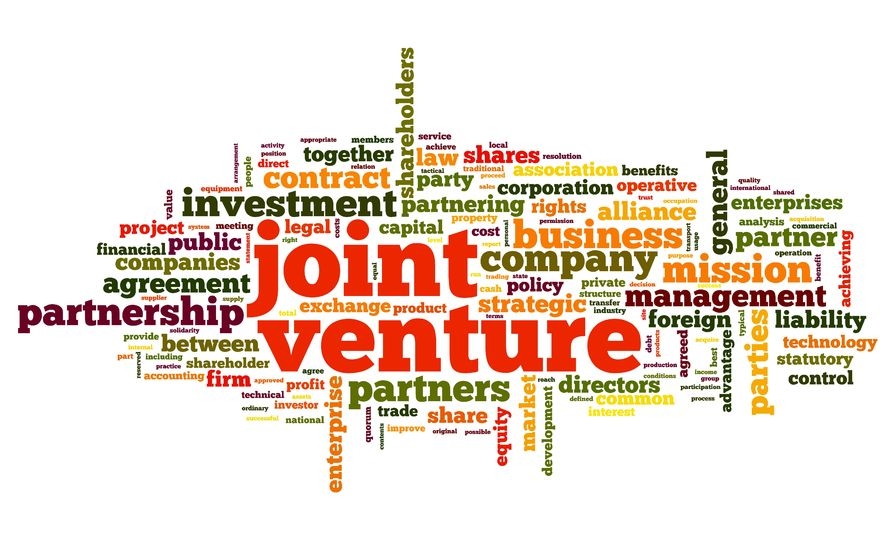In this blog post, Mohammed Azharuddin, legal counsel at Borderless Access Panels Pvt. Ltd and a student of Diploma in Entrepreneurship Administration and Business Laws by NUJS provides an overview on the provisions for dispute resolutions in joint ventures.
Introduction
Joint venture deals are entered into significantly to increase the market reach and profit potential of any establishment. The deals are structured in a strategic manner so that the parties involved are greatly benefited. JV deals involve the parties to share knowledge, asset, know-how, and profits. It must, however, be noted that Joint venture deals are not mergers as mergers involve companies transfer of ownership. In certain scenarios owing to the regulations governing the mergers and accusations deals, companies prefer to enter quickly into joint venture deals to acquire intellectual property, resources, technology, confidential information, etc.
Some of the crucial advantages of having a joint venture deal are:
- Greater allocation of resources as the parties could mutually help out each other to assign the required amount of capital.
- The technical expertise involved in a project is greatly increased.
- Larger and deeper penetration in markets which the reach is limited.
Types of Joint Venture Deals
- Short-term engagements: These Joint Ventures are limited for a short period wherein the parties would collaborate to work with each other for terms ranging typically from six months to one year.
- Full-term joint ventures: The Joint Ventures falling under this category last for a long duration typically ranging from five to ten years. These ventures cover a wide range of touch points and services to be provided along with products to be jointly developed.
- Limited Function: The JV’s falling under this category would be limited in nature; this could mean a limitation on every aspect of the deal ranging from sharing of information to development or manufacturing of a product.
- International Joint Ventures: International joint ventures entered with establishment over multiple jurisdictions have many cross-border transactions.
Now that the premises have been set in understanding what constitutes a joint venture and the types of Joint Venture in place, we shall specifically concentrate on the topic relating to the dispute resolution mechanism in Joint Venture agreement and The expertise in the event of any friction between the parties.
Dispute Resolution Mechanism
Having a Joint Venture deal apart from the profitability factor should [1]have effective dispute resolution mechanism as the stakes are very high, and any rift between the parties could lead to financial losses along with the ruptured reputation of business establishments. Hence, while entering into joint venture deals, it is important to keep the following factors in mind.
- the language of the documentation;
- the convenience of the location;
- the flexibility of the law in allowing the parties to regulate their affairs;
- the efficiency and familiarity of the litigation process;
- the perceived independence of the judiciary;
- the ability to enforce any judgment or award that is rendered;
- the level of damages and costs which may be awarded; and
- the choice of representation that it available to the parties*
Some of the commonly sought after ways to resolve disputes in Joint Venture arrangements is through arbitration and mediation. Under the arbitration form of settlement, it is essential to have an arbitration clause in the JV agreement wherein an independent arbitrator would be appointed by mutual consent and the award passed by such arbitrator would be final and binding on the parties.
Since there were many countries, a party to the New York Convention on Recognition and Enforcement of Foreign Arbitral award, the establishments choose to take this route rather than resolving the issue through litigation.
The advantages of resolving an issue with arbitration over litigation are:
- Neutrality
- Privacy
- Enforceability of the Arbitral award.
- Expertise of tribunal member.
Failed Joint Ventures Deals
India has witnessed many joint venture deals failing in the early 1980’s, most of these ventures belonged to the Automobile industry.
To begin with, in the year 1990, the joint venture of Kinetic group and Honda Motor Company was seen wherein Kinetic Group was made an offer by Honda Motor Company to buy out 51% of stake in Kinetic Honda Motors. The deal was finalized for a buyout with an offer of 35 crores. The JV later fell out due to not meeting the expectations of the consumers in a market which was selling high mileage motorcycles.
The second JV deal which needs to be mentioned is the Wal-Mart and Bharti Enterprises deal. The initiation of this deal goes back to the year 2007 wherein Wal-Mart started its cash and carry management operations in India by entering into a Joint Venture with Bharti Enterprises; the Joint Venture was named Bharti Wal-Mart Private Limited. The venture went sour in the year 2013 due to various operational challenges and the stringent compliances which India had in place for foreign investors.
The third failed venture which needs to be mentioned is that if Tata Motors Ltd and Fiat Spa. The organizations entered into a joint venture agreement in the year 2006 in which TATA Motors was expected to use its distribution network to market Fiat’s cars. The deal had to be called off in 2012 due to TATA motors dismal performance in making fiat’s brand felt in the Indian Markets.
*International Resource Journal
 Serato DJ Crack 2025Serato DJ PRO Crack
Serato DJ Crack 2025Serato DJ PRO Crack










 Allow notifications
Allow notifications


